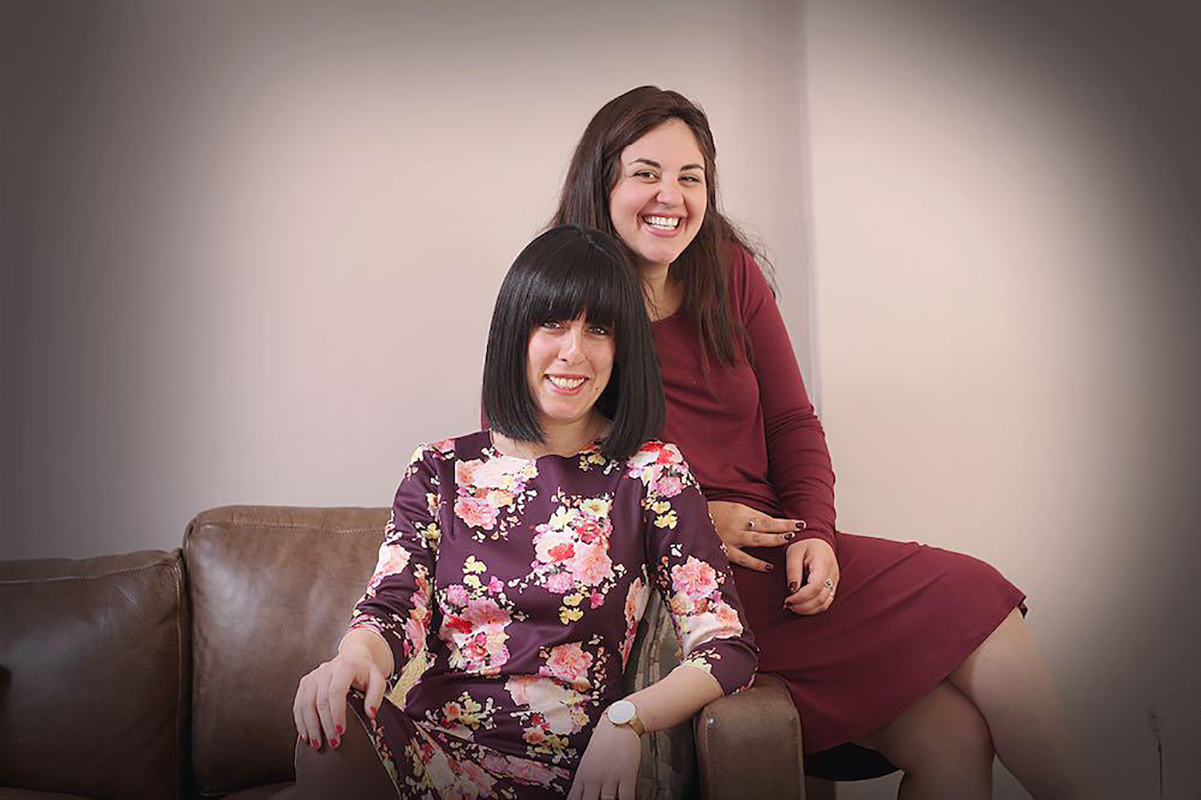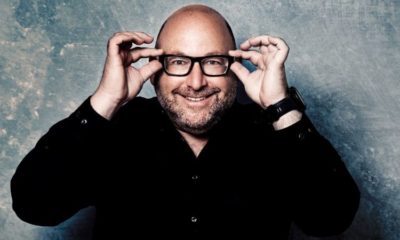
Community

Support, not stigma, key to addressing postnatal depression
“Women feel we have to be superheroes, but it’s being vulnerable that really makes us into supermoms,” says Feige Swimmer.
Together with Devorah Rothman, Swimmer is the co-founder of Achoti (My Sister), recently rebranded as Mom Squad, a community of women helping each other through the unique struggle of postnatal depression (PND).
The name change came during COVID-19 as a way of emphasising the group’s value in bringing moms together – those who have been through PND and those who are facing the diagnosis – especially at this time.
Swimmer’s own experience with PND a few years ago led her to start the group. Less than two weeks after giving birth to her third baby, Swimmer faced devastating news. Her mother-in-law, her main source of support, had a car accident and was subsequently diagnosed with cancer. Left alone with two boys and her newborn girl, Swimmer crashed. “I sought help, but I was put on the wrong medication,” she says. “I couldn’t eat and sleep for months, and I couldn’t mother my kids properly. I was in survival mode, depleted of energy. It was tortuous.”
Swimmer eventually hit rock bottom. “It was only by allowing myself to be vulnerable that I began to recover. I had to open up, accept help from my friends, and find the right doctor. That changed everything.”
Swimmer realised that by asking for help she was actually giving her friends the greatest blessing. When she was later asked to support Rothman who was suffering with severe PND, Swimmer embraced the chance to pay it forward. From visits to phone calls to walks, Swimmer spent hours helping her new friend deal with the struggles she’d previously faced. “I said and did the things I wished someone had done for me.”
As Rothman slowly began to recover, she suggested to Swimmer that they offer similar support to other PND sufferers. “Women in these situations feel very alone,” says Swimmer. “We’d become sisters, we’d been in the same mental space, and there was zero judgement. There was a connection, someone who just got you, who said it’s not your fault, it’s going to take time. Even your best friend, your mother, or your husband can’t fully understand.”
And so what ultimately became Mom Squad was born. Made up of former PND sufferers, the organisation volunteers to chat to, visit, and practically assist moms suffering from PND. It also plans to resume in-person support groups as a way of fostering further connection. Mom Squad refers PND sufferers to appropriate medical professionals and helps those who are questioning whether they have PND. “Moms can sit on the phone with us and just sob if they need to,” they say.
After calling for volunteers on the Joburg Jewish Mommies Facebook group, Rothman and Swimmer were inundated with responses. They’re proud to be breaking the stigma about PND, and to be empowering women to come forward. “After my experience, I realised there’s nothing to be embarrassed about,” says Swimmer. “Just letting someone else know that they’re not alone means my job is done.”
Mom Squad volunteer Ahuva Raff struggled with PND for years. Giving birth to her first child at the age of 21, Raff felt overwhelmed. “I was angry and emotional,” she says. “I saw a therapist because I knew something was wrong, I just wasn’t sure what it was.” The therapist had limited PND experience, and failed to refer Raff to a doctor. “PND is really a chemical imbalance, and you can talk about your feelings, but without the right medication, you’re not going to recover.”
Raff eventually stopped therapy, mistakenly thinking she’d recovered. “They say it often hits those with type-A personalities, those who have to have things in control – that was me. I could never get to that organised point again. I was calm, but I became anxious and irritable.”
Four years later, Raff had her second child and was prescribed Eglonyl to treat anxiety. “It kept me calm, but it wasn’t enough, and I often forgot to take it. I’d say I was fine, but I wasn’t. I was screaming the house down at my oldest child.” By the time Raff fell pregnant with her third baby, her day-to-day functioning was basically non-existent.
Six months pregnant and driving her kids to swimming, Raff accidentally ran over a man’s foot. “That was my turning point. Thank G-d he wasn’t actually hurt, but after that I crumbled because I realised that in my state, I could have actually killed someone.”
Raff went to her gynae, broke down, and was finally prescribed the right antidepressant. “It was a game changer, I felt like a totally different person. Everyone gets PND in different forms, but regardless of the severity of your case, your whole experience can change if you deal with it.”
For some, COVID-19 has added a whole new dimension to their baby journey. Not only did Becky Horwitz face the traumatic loss of her beloved mother-in-law weeks before her second daughter was born in February 2020, the country was also plunged into hard lockdown weeks after her daughter’s arrival.
“To be a parent in these unprecedented times was completely unnerving,” says Horwitz. “I was already taking Eglonyl to help with milk production for breastfeeding, and it was definitely taking the edge off emotionally.” Yet when the prescription ended, she began to feel the walls close in.
“I knew instinctively that I wasn’t okay,” says Horwitz. “I had previously struggled with circumstantial anxiety and depression, so I knew the signs.” Caring family members got the Horwitz’s a night nurse, but this was short-lived due to the COVID-19 threat. “At one point, my mom came to stay for about a week and I managed a few consecutive nights of uninterrupted sleep which felt like winning the lottery.” Yet COVID-19 restrictions made support from extended family and friends less accessible.
Horwitz suffered with feelings of failure, loneliness, and gut-wrenching guilt. “I faced anxiety and crippling self-doubt that left me reeling, nauseous, and with no appetite or strength. I had thoughts of running away and leaving my precious babies and beloved husband. I had never felt such utter helplessness and hopelessness.”
It was through articulating her feelings that Horwitz ultimately found comfort. She saw a counsellor and psychiatrist who prescribed medication, but it was the emotional support from someone who knew what she was going through that made all the difference. Through friends, she connected to the Mom Squad community. “Feige Swimmer was my rock. She congratulated me on seemingly small things like understanding that I needed help and asking for it.”
PND is something you learn to live with, says Horwitz. “Yet, I know that I can send a message to my support group any time of the day or night, and nine times out of ten, another mom will be having a hard time too. That connection, for me, is where the healing lies.”
Connect with Mom Squad on www.facebook.com/momsquadsa










